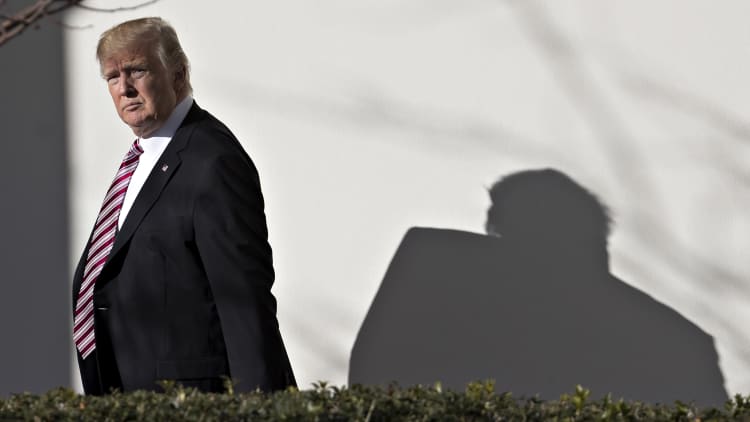
In an interview with CNBC on Friday, White House economic czar Gary Cohn said that the main beneficiaries of a planned corporate-tax cut are workers.
Touting the benefits of cutting the corporate-tax rate, he said it's not just rich investors who stand to gain. He said pensions own most of the corporate stocks in the world, and when corporate profits and corporate stocks go up from a cut in the corporate tax rate, pensions funded by workers will reap the rewards.
"Who owns equity in the world today?" Cohn asked during the interview. "The big pools of equity owners in the world today are the pension funds. The biggest public pension funds are the biggest owners of equity in the world."
He added: "They're the policemen, they're the firemen, they're the teachers, they're the civil servants of America today who have their money in public pension funds being managed in the U.S. equity market. We're helping Americans by delivering returns back to them."
Cohn is partly right. Pensions own a lot of corporate stocks. Some studies show that private pension and government pension and retirement funds own up to 20 percent of U.S. stocks. Some studies say it's far more.
Yet the wealthy own most of the stocks. And they own most of the pension accounts — and receive most of the pension gains.
Research from economist Edward Wolff of New York University, using data from the Federal Reserve, found that 94 percent of the top 1 percent own stock either directly or indirectly, compared with 41 percent of the middle class.
In 2013, the richest 10 percent accounted for about 85 percent to 90 percent of stock shares, bonds, trusts and business equity.
Pensions themselves are also top heavy. The bottom 90 percent of households accounted for only 35 percent of the value of all pension accounts, according to Wolff's research. The top 10 percent own the rest.
Put another way, pension accounts and stocks represent 19 percent of the total wealth of the middle class — or the middle three quintiles. But pension accounts and stocks represent more than 40 percent of the wealth of the top 10 percent.
Sure, firemen, policemen and teachers could see the values of their pension plans go up if stocks go up from a corporate tax cut. But their gains — both as a share of their wealth and a share of the total dollar gains — will be minor compared with the gains for the wealthy.
WATCH: Trump calls on Congress to pass tax reform



